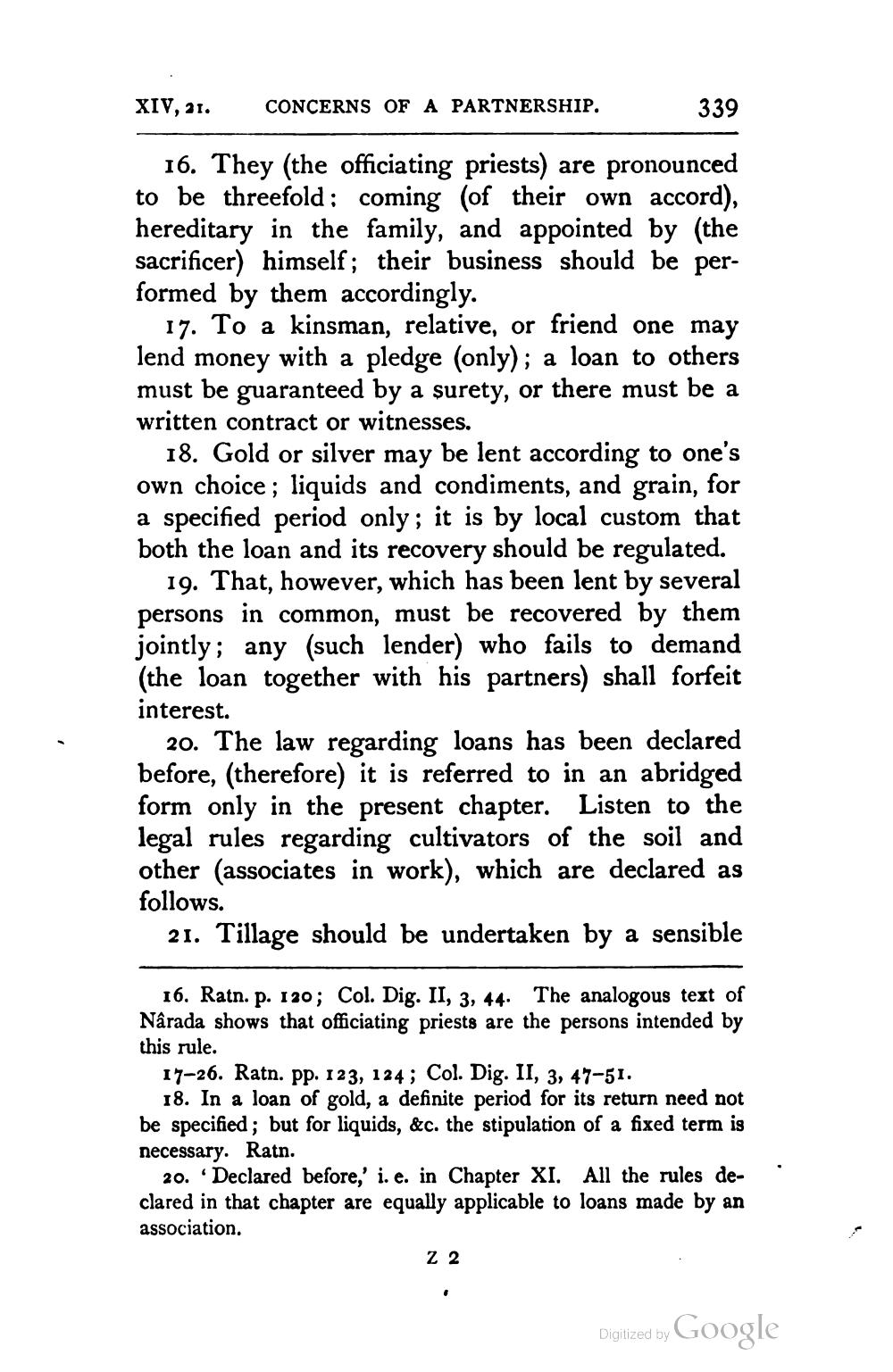________________
XIV, 31.
CONCERNS OF A PARTNERSHIP.
339
16. They (the officiating priests) are pronounced to be threefold: coming (of their own accord), hereditary in the family, and appointed by the sacrificer) himself; their business should be performed by them accordingly.
17. To a kinsman, relative, or friend one may lend money with a pledge (only); a loan to others must be guaranteed by a surety, or there must be a written contract or witnesses.
18. Gold or silver may be lent according to one's own choice ; liquids and condiments, and grain, for a specified period only; it is by local custom that both the loan and its recovery should be regulated.
19. That, however, which has been lent by several persons in common, must be recovered by them jointly; any (such lender) who fails to demand (the loan together with his partners) shall forfeit interest.
20. The law regarding loans has been declared before, (therefore) it is referred to in an abridged form only in the present chapter. Listen to the legal rules regarding cultivators of the soil and other (associates in work), which are declared as follows.
21. Tillage should be undertaken by a sensible
16. Ratn. p. 130; Col. Dig. II, 3, 44. The analogous text of Nârada shows that officiating priests are the persons intended by this rule.
17-26. Ratn. pp. 123, 124; Col. Dig. II, 3, 47-51.
18. In a loan of gold, a definite period for its return need not be specified; but for liquids, &c. the stipulation of a fixed term is necessary. Ratn.
20. Declared before,' i. e. in Chapter XI. All the rules declared in that chapter are equally applicable to loans made by an association.
22
Digitized by Google




